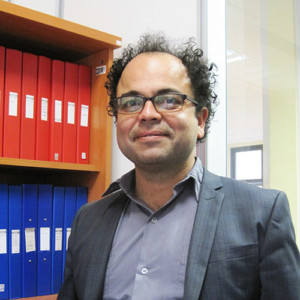SUSTAINABLE & INCLUSIVE URBAN PROSPERITY & OPPORTUNITIES FOR ALL
Sub-topic 1. Sustainable & Inclusive Urban Prosperity & Opportunities for All
This discussion is now closed. Thank you for your participation.
Moderators:
-
 Claudio Torres Slum Upgrading Consultant, Housing and Slum Upgrading Branch. UN-Habitat
Claudio Torres Slum Upgrading Consultant, Housing and Slum Upgrading Branch. UN-Habitat -
 Pireh Otieno Human Settlements Officer, Urban Basic Services Branch - UN-Habitat
Pireh Otieno Human Settlements Officer, Urban Basic Services Branch - UN-Habitat -
 Kulwant Singh Regional Advisor - UN-Habitat
Kulwant Singh Regional Advisor - UN-Habitat -
 Marcus Mayr Urban Planner, Climate Change Planning Unit, UN-Habitat
Marcus Mayr Urban Planner, Climate Change Planning Unit, UN-Habitat -
 Edmundo Werna Head of Unit at Sectoral Policies Dept. ILO
Edmundo Werna Head of Unit at Sectoral Policies Dept. ILO
Sub-topic 1. Sustainable & Inclusive Urban Prosperity & Opportunities for All
Please post your comments in the forum here or send to: support@habitat3.org
To fully harness the potential of sustainable urbanization, we make the following transformative commitments anchored on the economic, social and environmental dimensions of sustainable development.
We commit to develop vibrant, inclusive and sustainable urban economies, building on local resources, endogenous potentials, and competitive advantages, including modern infrastructure and cultural heritage, fostering an enabling environment for businesses and innovation, as well as livelihoods.
We commit to strengthen the role of housing in economic development and the contribution of the sector in stimulating productivity in other economic sectors, recognizing that housing enhances capital formation, labor productivity, income, employment generation and savings and can contribute to driving inclusive economic transformation at the local and national levels.
We commit to strengthen national, sub-national and local institutions to support local economic development, fostering integration, cooperation, coordination and dialogue across different actors and levels of government and functional areas.
We commit to facilitate effective participation and collaboration among all stakeholders, including local governments, the private sector, civil society, professionals, academic institutions, trade unions, employer’s organizations, grassroots communities, and others, in ascertaining the opportunities for urban economic development as well as in identifying and addressing existing challenges.
We commit to support territorial systems that integrate urban and rural functions into the national and sub- national spatial framework and the system of cities, promoting efficient use of land and natural resources, ensuring reliable supply and value chains that connect urban and rural demand and supply to foster regional development to bridge social and economic gaps.
26. We commit to encourage urban-rural interactions and connectivity by strengthening transport, technology and communication networks and infrastructure, underpinned by planning instruments based on a territorial approach in order to maximize the potential of these sectors for enhanced productivity, social, economic, and territorial cohesion, and environmental sustainability. This should include connectivity between cities and their surroundings, rural and peri-urban areas, as well as greater land-sea connections, where appropriate.
27. We commit to develop urban spatial frameworks, including urban planning and design instruments that promote efficient use of land, compactness, polycentrism, mixed uses, and appropriate density, through infill or planned extension strategies, to trigger economies of scale and agglomeration, and enhance resource efficiency.
28. We also commit to promote public spaces as drivers of economic development, leveraging their potential to generate increased property value, and to facilitate business and livelihoods opportunities both in the formal and informal sectors.
29. We commit to increase economic productivity through the generation and use of sustainable energy and transport infrastructure, achieving the benefits of connectivity and reducing the financial, environmental, and public health costs of congestion, air pollution, and noise. We also commit to pay particular attention to the energy and transport needs of the working poor and people living in informal settlements.
30. We commit to promote a healthy society and labor force with the knowledge and skills to contribute to an innovative and competitive urban economy, by ensuring universal access to adequate and quality public services, social infrastructure and facilities, such as healthcare, culture and education facilities, among others. We commit to generate productive employment, decent work, and livelihood opportunities in cities and human settlements with special attention to the needs and potential of women, youth and persons with disabilities, in particular the poorest and most vulnerable, and to ensure that all people have access to income-earning opportunities, respecting and leveraging culture and territorial specificity.
31. We commit to create an enabling, fair and responsible business environment, based on the principles of environmental sustainability and inclusivity, promoting investments, innovations, and entrepreneurship. We also commit to address the challenges faced by local business communities, through supporting micro, small and medium -enterprises and cooperatives, in particular businesses and enterprises in the social and solidarity economy, operating in both the formal and informal sectors.
We commit to recognize the working poor in the informal economy as contributors and legitimate actors of the urban economies, including the unpaid and domestic workers. A gradual approach to formalization will be developed to preserve and enhance informal livelihoods while extending access to legal and social protections, as well as support services to the informal workforce.
We commit to sustain and support urban economies to progressively transition to higher productivity jobs through high value added sectors, promoting diversification, technological upgrading and innovation, including the creation of qualified jobs in both the formal and informal sectors through cultural and creative industries, tourism, performing arts, and heritage conservation activities, among others.
We commit to harness the urban demographic dividend, where applicable, and promote access for youth to education and skills development, as critical to achieve increased productivity and shared prosperity in cities. We also commit to address the social, economic and spatial implications of ageing populations, where applicable, and harness the ageing factor as an opportunity for new jobs and growth, while improving the quality of life of a significant share of the urban population. We further commit to empowerment of all women and girls in order to enable their effective, full, and equal participation in the urban economy.
